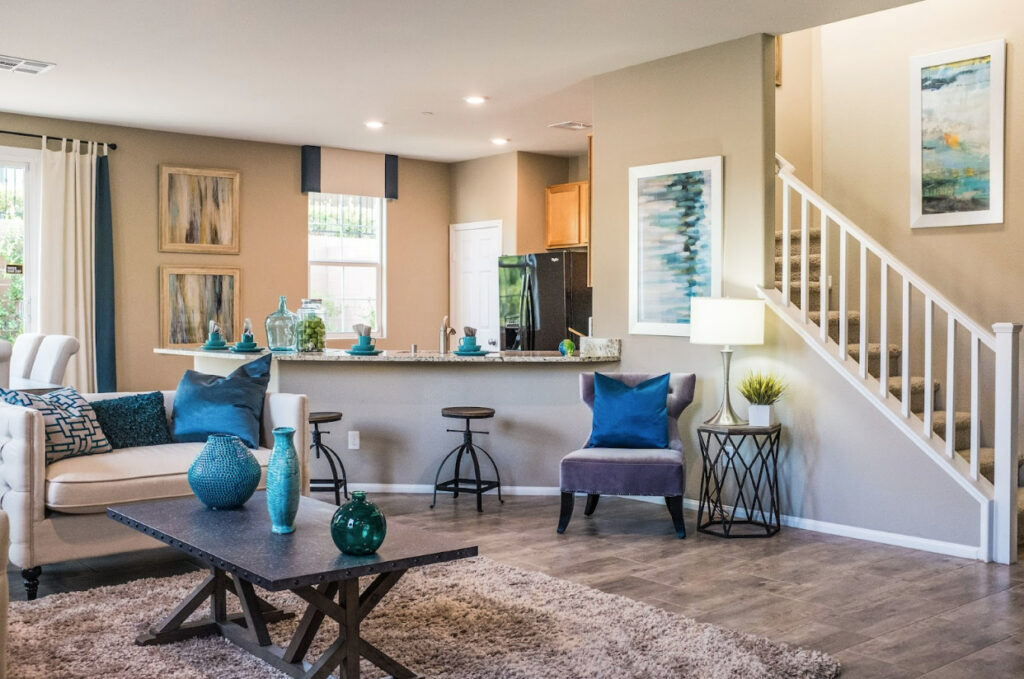It’s exciting to search for your next (or first) home…checking out the new listings, going to open houses, and dreaming of what life would be like in your new home.
But one important factor you don’t want to gloss over is whether or not your dream home is in a neighborhood that has a Homeowners Association (HOA).
Why?
Because it will have a direct impact on whether or not you enjoy living in your home and what you might expect if you decide to sell.
Read on as we dive into what HOAs are, what to expect when buying in a neighborhood with one, and the pros and cons you should know. So, let’s get started!
What is an HOA?
A Homeowners Association (HOA) is an organization that manages and governs a residential community or neighborhood. It is typically composed of residents who are elected to serve on the HOA board.
The primary purpose of an HOA is to maintain and enhance the community’s appearance, enforce rules and regulations, and manage common amenities or shared spaces, such as parks, swimming pools, or landscaping.
What to expect
When you buy a home in a neighborhood with an HOA, it’s important to understand what to expect. Here are some key points:
1. Fees and assessments
HOAs typically collect regular fees, known as dues or assessments, from homeowners to cover maintenance, repairs, insurance, and communal amenities. Before buying, ask about the HOA fees and understand how they fit into your budget.
2. Community rules and restrictions
HOAs establish a set of rules and regulations, often referred to as CC&Rs (Covenants, Conditions, and Restrictions), that residents must follow. These rules can cover a wide range of areas, such as architectural guidelines, landscaping restrictions, pet policies, noise regulations, and parking rules.
Ask for a copy of the CC&Rs and read through them to make sure they align with how you want to enjoy your property.
3. Enforcement and penalties
HOAs are responsible for enforcing the community rules. They may issue warnings, fines, or take legal action against homeowners who violate the established guidelines. Understand the enforcement process and penalties to avoid any surprises down the line.
Pros & cons of living in a neighborhood with an HOA
Now that we’ve covered the basics, let’s explore the advantages and disadvantages of living in a neighborhood with an HOA:
Pros:
1. Well-Maintained community
HOAs are committed to maintaining common areas and ensuring the neighborhood’s aesthetics, all in an effort to preserve property values in the area.
2. Amenities and services
Many HOA communities offer amenities like pools, gyms, parks, or clubhouses that homeowners can enjoy without having to personally maintain them.
3. Dispute resolution
HOAs can provide a structured process for resolving disputes among neighbors, helping maintain a harmonious living environment.
Cons:
1. Fees and assessments
HOA fees are an additional expense that homeowners must budget for, and increases in fees can occur over time.
2. Rules and restrictions
Some homeowners may find the rules and regulations too restrictive or not aligned with their personal preferences.
3. Lack of control
When living in an HOA community, homeowners must follow the decisions made by the HOA board, which may not always align with individual preferences.
Other factors to consider
While selling a home within an HOA isn’t necessarily harder than selling one without HOA restrictions, there are other factors to consider if you anticipate ever selling at some point in the future.
1. HOA fees
HOA fees can be a deterrent for some potential buyers, as they add an additional ongoing expense to homeownership. It’s important to be transparent about the fees associated with the property and help buyers understand the value they receive in return.
2.Rules and restrictions
The rules and restrictions set by the HOA may not align with every buyer’s preferences. Some buyers may be hesitant to commit to a property with specific guidelines and regulations, so it’s crucial to disclose and explain these aspects to interested parties.
3. Limited flexibility
In an HOA, homeowners have less control over decisions that affect the community. Some buyers may prefer more freedom and autonomy when it comes to modifying their property or making changes without seeking HOA approval.
Remember, every HOA is unique, and it’s essential to ask questions, attend HOA meetings, and talk to current residents to gain a comprehensive understanding of the community you’re considering.
With the right information, you can make an informed decision and find a neighborhood that truly feels like home.
5 Things to Consider Before Buying in an HOA Community


